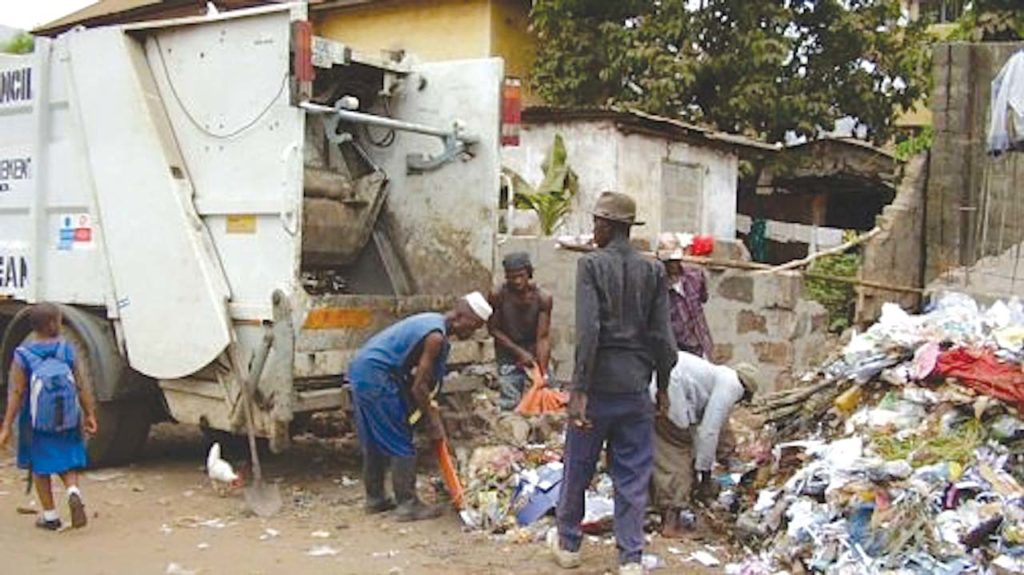The practice of collecting, treating, and managing waste prior to disposal has become a necessity in developing and modern societies.

Over the years, most waste products have been regarded as having second-rate value and could be recovered and reused for valuable goods.
Subsequently, waste can be wealth when properly managed especially in developing economies experiencing recession such as Nigeria.
However, adequate waste is a requirement for effective integrated waste management, which will boost resource recovery, reuse, and recycling.
Waste is often seen as something that is of no use or anything useful that is considered less important and, that is why some waste are recyclable and waste to wealth programmes exist in many countries.
Mr Mathew Bolaji, an environment expert and retired civil servant, describes waste as the excess from a production process that can be used in the production of other components or materials.
Bolaji asserts that most suburbs in some states of the federation are highly polluted with waste products.
“A waste may either be domestic waste or household waste, medical waste, solid and liquid waste, industrial waste, such as waste from engine oil, ashes, sewage sludge, industrial metals; that the government seeks to manage to preserve the environment and increase its economic value,’’ he said.
Bolaji says that the quest for wealth creation is a major concern to individuals and governments due to high unemployment rate and poverty level.
He claims that poverty in the country affects the entire population one way or the other though, the levels differ from individual to individual and the widespread of this phenomenon cuts across rural and urban communities.
Bolaji observes that the concept of poverty can not be envisaged in a single definition, adding that various programmes of poverty alleviation have been adopted by different governments and their machineries.
He expresses the belief that the problem facing many poverty alleviation programmes in Nigeria is poor implementation.
Mr William Osaze, President of Society for the Promotion of People’s Right, a non-governmental organisation (NGO), says that his organisation is planning more on converting waste to wealth to create job opportunities for the youth.
Osaze says that the organisation has organised various programmes on waste to wealth, adding that the effort is to drive the vision of using waste to create wealth.
He notes that the programmes aim to create more awareness on the economic benefit of proper waste disposal.
Osaze advised Nigerians not to litter the environment with used plastic bottles but convert them to usable items.
He says that his NGO is embarking on a sensitisation programme, adding that the essence is to educate the public on the benefits of proper waste disposal.
Osaze says that the organisation undertakes a waste-to-wealth scheme, which focuses on managing and processing used materials to create reusable products.
He says that such materials include bottles, paper waste, food waste from cafeterias, plastic food packs, nylon, cans, among others.
The president affirms that the effort is part of the NGO`s contribution to assist as well as alleviate poverty among Nigerians through job creation.
“Plastic bottles and other forms of refuse can be converted to usable items by recycling companies so we also advise Nigerians to use designated dumps.
“This will both improve environmental cleanliness and reduce poverty,” Osaze said.
Mr Joseph Effiong, an environmental expert, urges Nigerians to remain proactive and engage in strong sustainable initiatives that can help to positively shape the environment.
Effiong says that converting waste to wealth is another way of making the environment clean and attractive.
He asserts that the effort will reduce indiscriminate dumping of waste and enhance proper management of waste by the people.
The expert advised the various tiers of government and other relevant stakeholders to enter into sustainable partnerships with others who shared similar objectives and goals.
Effiong says this is to enable adopting effective use and management of waste as a means to wealth creation, as well as ensuring a healthy living environment, adding that such will help eradicate poverty in the country.
Effiong says that Nigerians should be committed to environmental sanitation and waste-to-wealth programmes.
He also called on the government at all levels to provide more recycling companies and facilities for effective implementation of waste management as the effort would support the campaign for converting waste to wealth.
Minister of Science and Technology, Dr Ogbonnaya Onu, has announced that the Federal Government was working hard to ensure the conversion of electronic waste to wealth and mitigate the impact of e-waste on the environment.
Onu says it is very important that electronic waste are disposed in a way that is environmentally sound.
The minister assured that his ministry would do everything possible to ensure the safety of the environment and mitigate the negative impact on the people.
Onu further explained that the ministry, through its agencies, National Space Research and Development Agency, National Agency For Science and Engineering Infrastructure, and National Research Institute For Chemical Technology, had been working hard to ensure such waste conversion.
He added that problems which were spin-offs of the scientific progress could also be solved through science, technology and innovation.
By Vivian Emoni
